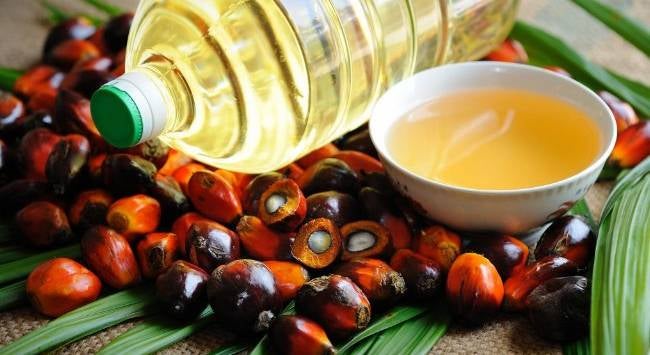Indonesia’s Palm Oil Export Ban: India must Diversify Sources to Avoid Future Supply Disruptions
Divya Murali, Amitendu Palit
27 April 2022Summary
Indonesia’s decision to ban palm oil exports has serious implications for India. The immediate impacts will mean higher prices of cooking oil and a rise in consumer rates. India, the world’s largest palm oil importer, must diversify its sources for edible oils to avoid future disruptions and ensure food security.
Indonesia will ban the export of palm oil with effect from 28 April 2022. This is to ensure adequate availability of the oil for its domestic consumption.
Cooking oil prices in Indonesia – the world’s largest palm oil producer – have risen fast leading to popular discontent. Earlier this year, Indonesia restricted its palm oil exports in the hope of bringing prices down. However, the restrictions could not stabilise prices.
High cooking oil prices in Indonesia are due to lower domestic output. The COVID-19 pandemic-induced labour shortages have affected local production in Indonesia and Malaysia – the largest global exporters of palm oil. Lower outputs in these countries have impacted the global edible oil market that has been under tremendous stress in the past few months.
It is not just palm oil supplies that have dwindled. Soybean oil supplies will be affected due to a poor soybean output in Argentina, a major exporter of the commodity. Further, the droughts in parts of Canada and Europe in 2021 will affect the production of canola oil – a variety of rapeseed oil – causing supply shortage. Finally, the conflict in Ukraine will affect the output of sunflower seed oil, with Ukraine being the leading global producer and exporter of the item.
An export ban by Indonesia might have been driven by the view that more palm oil output is being diverted to exports, as opposed to the domestic market, leading to local shortages and price increases. The decision will have profound implications for global edible oil supplies. The impact is expected to be particularly significant for India.
India is the world’s largest importer of palm oil, followed by China and Pakistan. India imports more than half of the edible oils it consumes. According to the United States Department of Agriculture April 2022 report on oilseeds, palm oil is the most consumed vegetable oil in India accounting for around 40 per cent of India’s edible oil imports. Other major vegetable oils consumed by India include soybean oil, rapeseed oil and sunflower oil.
India’s consumption pattern of edible oils reflects the global trend. Palm oil is the most popular cooking oil globally, followed by soybean oil, rapeseed/canola oil and sunflower seed oil. Apart from cooking, palm oil is used extensively in several consumer products such as soap, shampoos, chocolates and biscuits. For a huge palm oil importer like India, the impact of not being able to source from Indonesia will be broad-based and experienced by various industries and their consumers.
India’s foremost concern will be to manage domestic edible oil prices. Food and commodity prices have been rising since the COVID-19 pandemic. The hostilities in Ukraine have accelerated the rise in global energy and food prices. India’s Consumer Price Inflation for March 2022 was at a high of 6.95 per cent. The sharp spike in edible oil and vegetable fat prices were major contributors to the rise. The extensive use of palm oil by various consumer product industries will impact the retail prices of all these products as producers will be forced to buy palm oil at higher rates and pass the cost to the consumers.
India’s edible oil industry association has urged the government to initiate dialogue with Indonesia for the resumption of exports. Unless Indonesia resumes exports, India will have to rely excessively on imports from Malaysia. The Indonesian export ban will increase demand for Malaysian supplies leading to stiff prices of Malaysian palm oil and more difficulties for large palm oil importers like India.
The export ban by Indonesia is an example of countries resorting to trade restrictions to safeguard domestic interests. Since domestic conditions are unlikely to change fast, the restriction is expected to remain in place. At best, the ban might be replaced by high export taxes to discourage exports.
For India, the situation is yet another stark reminder of the necessity of diversifying the import sources. Import dependence on a few countries can create serious economic vulnerabilities as seen during the COVID-19 pandemic. The palm oil ban should be a wake-up call in this regard. Without diversifying sources, India runs the risk of hurting its food security. Until such arrangements materialise, India must brace for supply disruptions and stiff cooking oil prices that would exacerbate inflation.
. . . . .
Ms Divya Murali is a Research Analyst at the Institute of South Asian Studies (ISAS), an autonomous research institute at the National University of Singapore (NUS). She can be contacted at divya.m@nus.edu.sg. Dr Amitendu Palit is a Senior Research Fellow and Research Lead (trade and economics) at the same institute. He can be contacted at isasap@nus.edu.sg. The authors bear full responsibility for the facts cited and opinions expressed in this paper.
Photo Credit: Twitter: @ArthurBenta
-
 More From :
More From :
-
 Tags :
Tags :
-
 Download PDF
Download PDF



